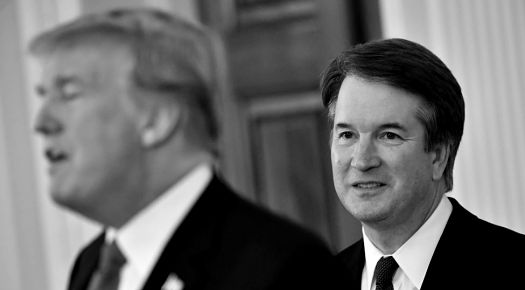
President Donald Trump made an announcement from the White House nominating Brett Kavanaugh, U.S. Court of Appeals Judge, to Supreme Court to replace Justice Anthony Kennedy. “Judge Kavanaugh has impeccable credentials, unsurpassed qualifications, and a proven commitment to equal justice under the law,” Trump said, according to Religionnews.com, as Kavanaugh stood nearby with his wife and children. “He is a brilliant jurist with a clear and effective writing style universally regarded as one of the finest and sharpest legal minds of our time.”
Nominated judge is known as a religious liberty 'warrior' with his conservative views regarding many important issues. During his career he helped author the report on Bill Clinton’s affair with Monica Lewinsky, represented Cuban child Elian Gonzalez pro bono to keep him from returning to the island nation and was a lawyer with the George W. Bush campaign during the Florida recount.
After being appointed to the District of Columbia Circuit of the Court of Appeals, Kavanaugh wrote some dissents in cases regarding birth control. In Garza v. Hargan case, when the court allowed an undocumented teenager who had crossed the border from Mexico into Texas as an unaccompanied minor to get an abortion while residing at a government-funded shelter, Kavanaugh argued that this case promotes a new right for unlawful immigrant minors in U.S. government detention to obtain immediate abortion on demand. Also, he opposed the decision in another case when the court declined to take up a case brought by a group of priests who objected to the Obama administration’s rules regarding contraceptive coverage.
Brett Kavanaugh chaired the Federalist Society’s Religious Liberty practice group in the 1990s and offered pro bono work for cases defending religious freedom. As Religionnews.com reports, Justin Walker — assistant professor at the University of Louisville Brandeis Law School and former clerk of both Kennedy and Kavanaugh — argued the D.C. circuit judge is ultimately a “warrior for religious liberty.” In an email to Religion News Service, Walker says “Judge Kavanaugh believes his job is to apply the law objectively, without regard to his personal views. Part of applying the law objectively includes applying the Constitution. He also understands that our founders believed deeply in religious liberty, and that the Constitution they wrote protects the free exercise of religion.”
With his history of fighting for religious liberty, Kavanaugh's appointment, if confirmed by the Senate, could easily set the court on a more conservative course in future, and that is why Trump's decision to nominate Kavanaugh could be one of the most consequential ones.
Photo Credits: WBUR
